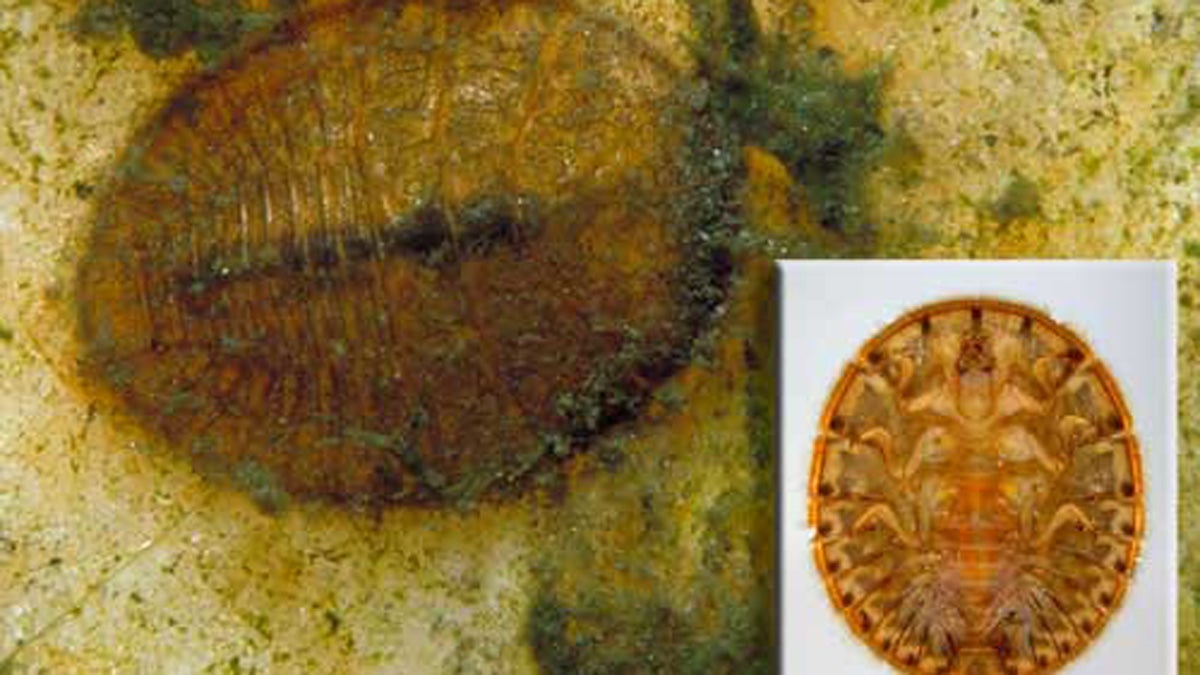Citizen scientists track tiny critters to determine health of the watershed
Listen
Water pennies (Psephenidae) are a type of beetle that are sensitive to pollutants (Photo Courtesy of Dave Funk)
Turns out eight-year-olds aren’t the only ones who love great piles of leaves.
Tara Muenz, education manager at the Stroud Water Research Center in Avondale, loves them too. And so do the critters that help Muenz and other determine the health of the watershed: macro-invertebrates.
Recently, Munez was standing knee-deep in a branch of the White Clay Creek in southern Chester County. It’s a small stream, only about five-feet across. Biologists call it a “headwater stream.”
“Because they’re at the very beginning of our watersheds,” she said. “They’re like the lifeblood of our watersheds.”
Muenz and other scientists use macro-invertebrates as sentinels that indicate stream health or stress. Piles of leaves in the stream provide a great food for them.
A local example is the water penny.
“This is actually a type of beetle that’s really sensitive,” she said. “You also might find midges, which are a really neat group. Probably one of the most diverse groups of macro-invertebrates that we have. As a whole, we classify them as more tolerant.”
Since 1989, scientists at the Stroud center have been collecting data on the presence, absence and numbers of these insects to chart the health of waterways in their area, and wherever else they have volunteers.
Rather than wait for clumps of leaves to accumulate on their own, participants create leaf packs and anchor them in the stream. The tools are pretty simple: Basically a mesh bag and local leaves.
After a couple of months, volunteers retrieve the leaf packs and examine the contents.
“What you’ll find in there is pretty remarkable,” she said. “You see things moving and buzzing around. Then you get into the identification, which is so much fun. It’s a great opportunity for kids, to get out in the woods, watch the seasons, and collect valuable scientific data.
Karen Barker teaches seventh grade science at the Tatnall School in Wilmington, Delaware. She says a project like the Leaf Pack Network benefits both her students and the scientific community.
“In the last 10 years or so,” Barker said, “citizen science is huge, and people are realizing the value that scientists can’t have eyes everywhere, but we can be all these other places.”
Though based in Chester County, the Leaf Pack Network has participants as far away as Africa and Central America. Closer to home, there are still streams waiting to be adopted.
WHYY is your source for fact-based, in-depth journalism and information. As a nonprofit organization, we rely on financial support from readers like you. Please give today.

